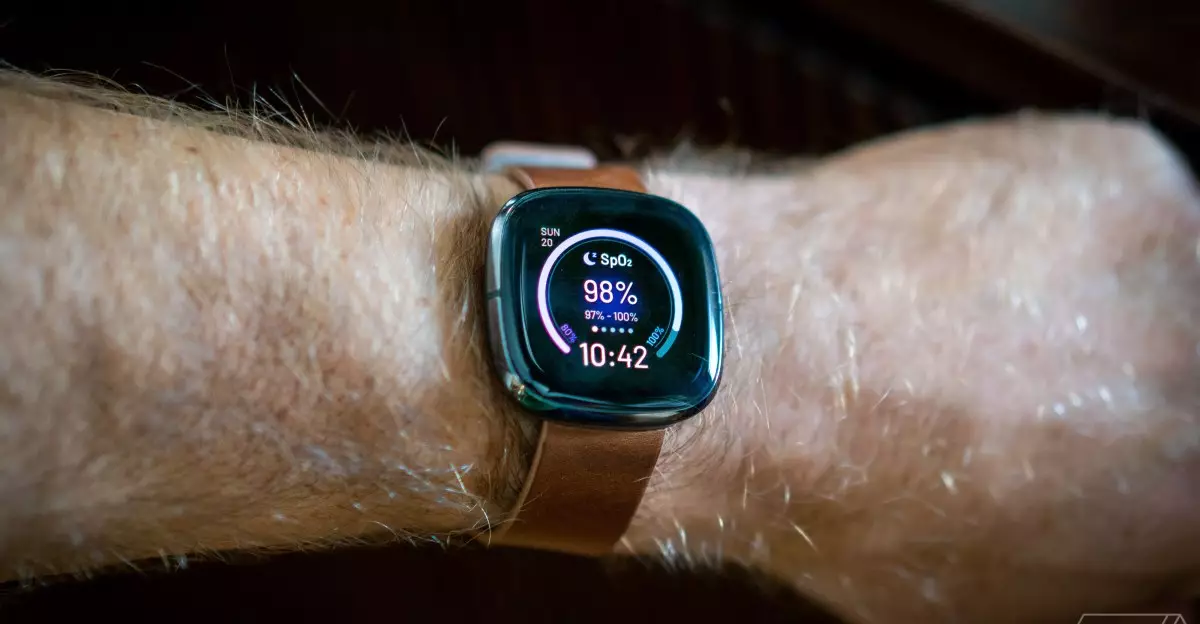In the wearables market, Fitbit has established itself as a prominent name synonymous with fitness tracking and convenience. However, a recent mandatory firmware update for the Versa 3 and Sense models has ignited a firestorm of complaints from users. This update was intended to address critical issues related to battery overheating—a serious concern that inevitably raised alarms among consumers. While the intentions behind the update were ostensibly to enhance consumer safety, the unintended consequence has left many users grappling with drastically reduced battery life, tarnishing Fitbit’s reputation among loyal customers.
The heart of the matter lies in Google, the parent company of Fitbit, officially acknowledging that the firmware update was implemented to minimize the risk of battery overheating. However, this fix came with an unfortunate trade-off: a significant decrease in battery capacity. Users have expressed outrage over their once-reliable devices, which previously boasted battery life ranging from two to six days, now scarcely making it through a single day. This unwelcome shift not only affects the usability of these devices but also transforms them into what some users are now deeming “useless.”
The essence of a smart wearable lies in its convenience, and the expectation for a rechargeable device is for it to deliver consistent performance over a reasonable period. The disparity between moderate charging frequency and daily charging is colossal in the eyes of wearers who expected longevity—a hallmark of Fitbit products. The backlash has been palpable, as frustrated customers have taken to various online platforms to voice their discontent, creating a swell of concern that cannot be ignored.
In response to this uproar, Google has offered affected users a $50 credit as a gesture of goodwill. However, many consumers are left unimpressed by this amount, arguing that it pales in comparison to the inconvenience and dissatisfaction stemming from the device’s compromised functionality. A financial compensation model should align with the value of the product and the disturbance caused by its malfunctions, and for many, this offer seems inadequate.
Moreover, Google’s refusal to provide detailed clarifications or further commentary on the matter has aggravated the situation. Users sought transparency regarding the update’s necessity and implications but were met instead with an official statement that raises more questions than it answers. In a landscape where customer trust is paramount, insufficient communication only amplifies growing frustrations.
The recent firmware update is not an isolated incident; it follows a series of battery overheating allegations that have plagued Fitbit products over the past few years. Notably, Fitbit was fined $12 million following reports of its Ionic watches overheating and resulting in physical burns—an alarming trend that raises concerns regarding product safety and manufacturing standards. Additionally, previous lawsuits have implicated various models, including the Versa Lite and Versa 2, in similar overheating incidents, signaling that the issue transcends a single product line.
Online forums and social media threads, particularly on platforms like Reddit, are replete with testimonies of users who have experienced everything from burns to skin irritations. Moreover, frequent complaints regarding rapid battery depletion further compound the issues and highlight the challenges of customer service in addressing these concerns. The accumulation of user testimonials paints a daunting picture for the brand, indicating that the firmware update series may only be the tip of a much larger iceberg of systematic battery-related problems.
The recent firmware debacle raises critical questions regarding consumer safety and company accountability within the tech and wearable markets. While acknowledging hardware risks is vital, it is equally important for corporations like Google and Fitbit to approach such situations with a more comprehensive and customer-centric strategy. Transparency, empathetic communication, and adequate compensation are not mere afterthoughts; they are essential elements in maintaining trust. With trust teetering on the edge, consumers are left to ponder the future of their favorite wearables—in a market where performance is king, will Fitbit be able to regain their footing? The onus is now on the company to demonstrate its commitment to consumers by prioritizing safety and satisfaction over profits, lest they risk losing their loyal following altogether.

